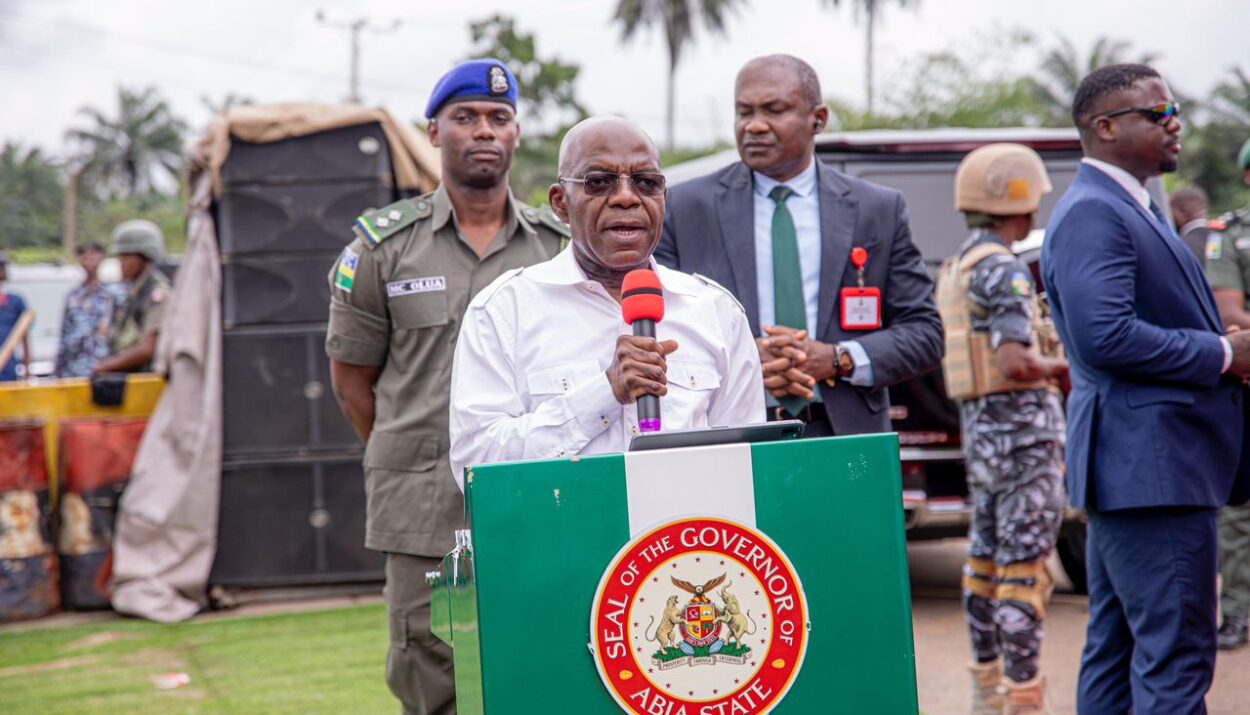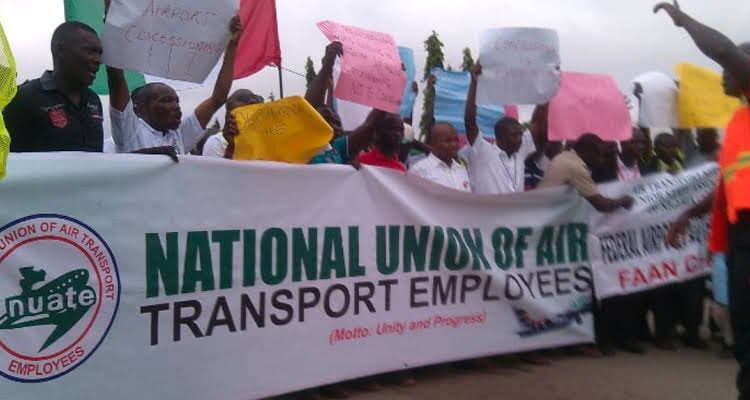Justice As Foundation Of Enduring Development
Being the Text of a Speech Delivered by Governor Alex C. Otti, OFR, at the Foundation Laying Ceremony for the Construction of Modern Court Buildings in the 17 Local Government Areas of Abia State at Umuene, Isiala Ngwa South LGA on Thursday, October 3, 2024.
Protocols
1. Development is often given a narrow definition in political conversations. It is mostly about improving the stock of physical infrastructure, but for us as a government, development has a much broader meaning. Clearly, we want to build a State where the roads are in great shape for seamless transportation of people and goods, electricity is reliable for residential and commercial needs, schools and hospitals supportive to learning and healing respectively, with staff properly motivated to give their best. A major promise of our administration is to deliver an economic system where those who need jobs are able to find gainful employment to support themselves and others who function as entrepreneurs supported to thrive and build profitable ventures.
2. Beyond all of the above, we are also committed to building a society where there is access to justice for persons of all economic and social backgrounds. We are not just interested in having signposts pointing individuals to a courtroom; we are determined to work jointly with the State judiciary and other relevant stakeholders to build an effective ecosystem that delivers justice in good time to the poor and wealthy without bias.
3. On this note distinguished ladies and gentlemen, let me gladly welcome you to the foundation laying ceremony for the construction of a model court building here in Umuene, Isiala Ngwa South LGA of Abia State. This Project is in line with our vision of working closely with the judicial arm of Government to create robust channels for the speedy dispensation of justice. This initiative is anchored on the common understanding that access to justice is an irreducible minimum in a democracy. In the New Abia, there is a consensus that the rights of a poor widow are as important as the legal safeguards of a wealthy industrialist who wants to enforce the terms of his contract.
4. What we have gathered to witness is not just about the erection of new blocks of courtrooms from where those who work in the temple of justice can perform their day-to-day activities; we have come to fulfil a major campaign promise that under our watch, centres of justice administration in the State shall have a more functional appeal in view of the importance of the judiciary as a major anchor of our civilisation.
5. To ensure that these projects are self-sustaining, we have incorporated renewable energy and water supply mechanisms into the structures, the IT-support system shall be best-in-class and all the resources needed to support the work of the judicial officers have been incorporated into the project design.
6. Because we understand the place of the judiciary in the making of a model society, we have prioritised all established protocols and standard practices guiding the engagement between the executive and judicial arms of government to make for harmonious working relationship. The independence of the judiciary in the State is non-negotiable because we are a government that is driven by the letters and spirit of the law. Even then, we have also made certain that no support is withheld from the judiciary when required. Through our support, several judicial officers in the State now have unfettered access to the most recent literature and resources relevant to their roles. We have also supported their participation at local and international conferences and symposia because we want our judicial officers to appreciate the dynamic trends and evolution of their practice.
7. Let me very respectfully thank the Chief Judge of the State, Justice Lillian Abai, for her zeal for an improved judicial system, prudence and commitment to transparency. On account of the diligent efforts of the Chief Judge, several courts in the State are already wearing a new look through structural repairs, replacement of worn-out furniture and sincere interest in the welfare of the judicial personnel in the State.
8. Let me also commend the State Commissioner for Justice and Attorney General, Mr Ikechukwu Uwanna, for his commitment to strengthening the pattern of mutually respectful relationship between the executive and judicial arms of government. As a government, we do not take for granted, our shared responsibility for the actualisation of the intangible promises of democracy and commitment to the protection of the rights and privileges of the ordinary man under the provisions of the laws of the Federal Republic of Nigeria. Through the support and guidance of the Attorney General’s office, Abia has become a model of harmony and interdependence between the executive and the judiciary in ways that leverage the principle of separation of powers to strengthen and not constrict the scope of effective governance and administration.
9. One clear message we are sending to the general public through the development of these model court halls is that in the New Abia, law and order must take precedence over emotions and resort to jungle justice. Individuals, groups and communities are encouraged to always test their positions before our courts and let the law guide our actions and decisions, especially in moments of disputes and uncertainty. We must become a society that is deeply committed to civilised approaches to dispute resolution especially now that the courts will not just be visible in our various communities but will also be functioning in sincere service to the course of justice, equity and fairness to all.
10. We have secured the commitment of the contractors that the projects will be delivered as scheduled. Let me reiterate that we shall not accept shoddy execution and anything short of the best standards as captured in the approved designs shall be promptly rejected. Mechanisms have also been put in place for effective project monitoring.
11. The development of any society as we know is a shared obligation between the government and the people. Under our administration, we shall do everything in our power to see that no sector is left behind in the push for development. We are as committed to infrastructural development as we are to the protection of the civic rights of individuals, security of lives and property, and access to basic social services including education and health, as well as catering to the needs of Abians in desperate situations, no matter where they live.
12. However, it must be borne in mind that what we can achieve as a Government is closely tied to the support we receive from the citizens through regular payment of taxes and other statutory fees, protection of public property in our communities and cooperation with the security agencies through the supply of actionable intelligence to stop criminals in their tracks. We are encouraged to take our obligations as citizens more seriously as that is the only way to sustain the tempo of the streams of development we have initiated.
13. Thank you for listening and may God bless you all.
Dr Alex C. Otti, OFR,
03/10/2024






